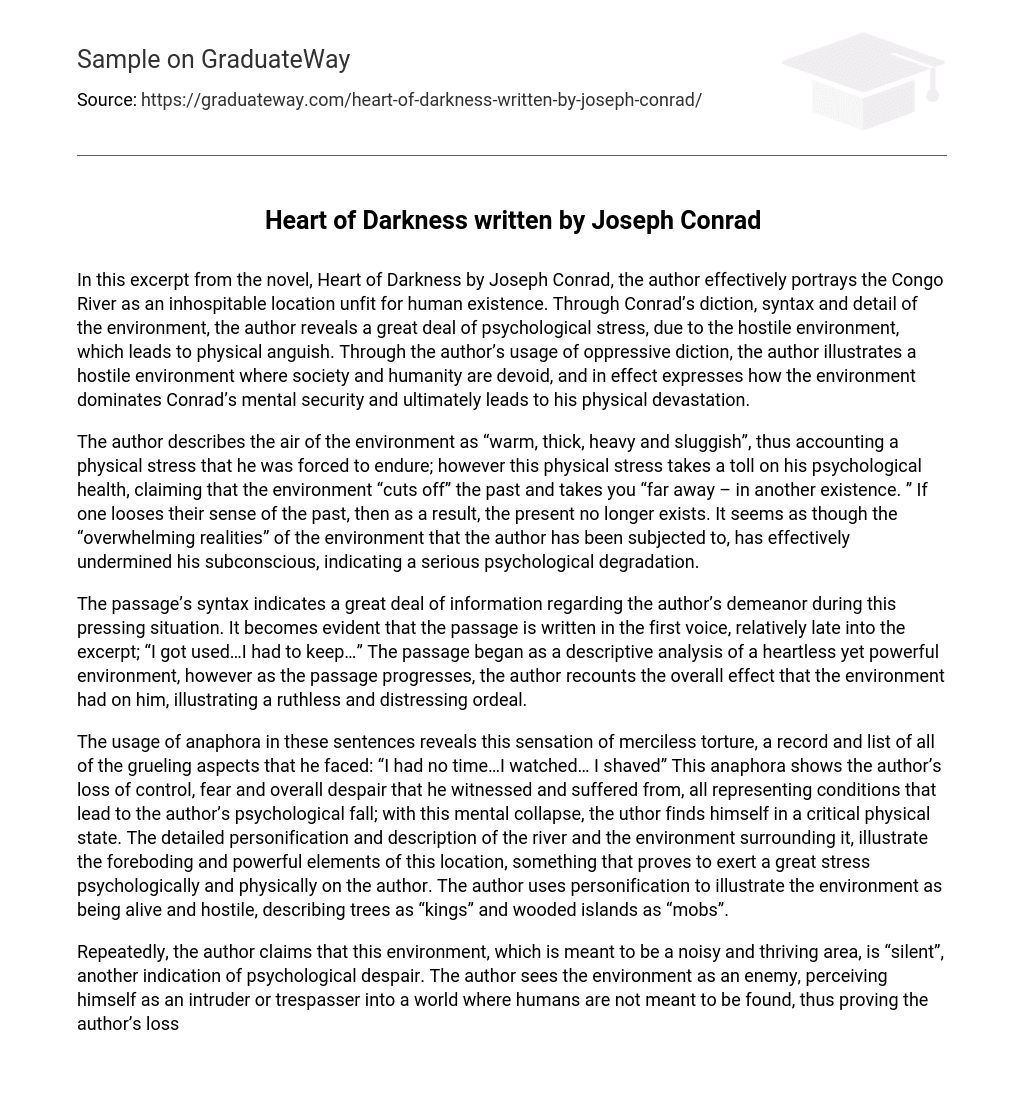Joseph Conrad’s book Heart of Darkness skillfully depicts the Congo River as a harsh and inhospitable place unsuitable for human habitation. Through his choice of words, sentence structure, and description of the surroundings, Conrad reveals the psychological strain caused by the hostile environment, leading to physical suffering. Using oppressive language, Conrad effectively portrays an environment devoid of society and humanity, emphasizing how the surroundings overpower his mental well-being and ultimately cause his physical deterioration.
The author depicts the atmosphere as “warm, thick, heavy and sluggish,” which causes physical strain. This strain, in turn, negatively impacts their psychological well-being. The author asserts that the environment severs ties with the past and transports one to a completely different state of being. When one loses their connection to the past, the present ceases to exist. It appears that the author’s subconscious has been significantly weakened by the immense realities imposed by the environment, highlighting a profound psychological decline.
The passage’s syntax reveals the author’s demeanor during a pressing situation. It is clear that the passage is written in first person, later on in the excerpt: “I got used… I had to keep…” Initially, the passage describes a heartless but powerful environment, but as it continues, the author reflects on the impact the environment had on them, portraying a harsh and distressing ordeal.
The sentences in this passage use anaphora to convey a sense of merciless torture. They serve as a record and list of the grueling aspects the author faced, such as having no time, watching, and shaving. This anaphora illustrates the author’s loss of control, fear, and overall despair, all of which contributed to their psychological downfall. As a result of this mental collapse, the author finds themselves in a critical physical state. The vivid personification and detailed description of the river and its surroundings depict the ominous and powerful elements of this location, which psychologically and physically stress the author. The author personifies the environment, portraying trees as “kings” and wooded islands as “mobs.”
Repeatedly, the author depicts this environment as “silent,” despite it being intended to be bustling and vibrant. This portrayal serves as a further sign of psychological hopelessness. Furthermore, the author views the environment as adversarial, feeling like an outsider or interloper in a realm unsuited for human presence. This underscores the author’s detachment from reality, causing significant strain on their mental and physical well-being.
The passage demonstrates how the author’s use of language, sentence structure, and descriptive elements depict a rapid deterioration in both his mental and physical state. In this hostile and perilous world, Conrad succumbs to a loss of control, becoming fixated on his surroundings and feeling utterly controlled by this inhospitable environment.





